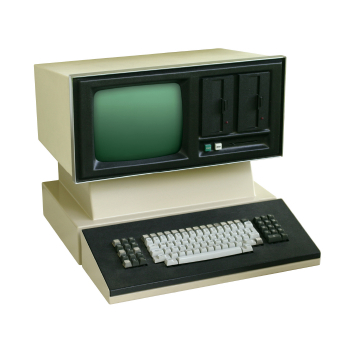So as you can tell, I’ve been on break for quite some time. School starts today (Jan 23rd), so I figured I should make a post about what I’ve been up to! I wrote two articles about various research projects I’ve been working on last semester in which I told you I would keep you up to date on. The journal deadlines for those projects have both been pushed back to March 20th (it was originally January 15th). As before, I will update and link details as they come!
Since Thanksgiving until my break started on December 19th, I was busy cramming for finals and finishing up class projects. The last month (December 20-today) I must admit, I’ve not done much more than watch Netflix, play games, work on a few side projects, and eat. It’s been a very nice vacation!

This semester looks to be full of promise for many projects. The two research teams I mentioned before will be submitting articles to the TCIAIG Special Issue on March 20th, so hopefully those will be published and I can share with you all! I will be working on a new project this semester, which I will be making a post about soon. In addition to all of that (and school), I am attempting to publish a new game I’ve been working on for over two years sometime this semester. It will be available first on Android mobile devices and later the iPhone, so I will be needed some beta testers if anyone is interested!
Ever since I started this journey in academia, I’ve had friends and family asking these kind of questions:
Isn’t AI all about robots? That’s what my friend said.
Won’t AI take all of our jobs?
and best of all,
Won’t artificial intelligence spell the end of life as we know it? Why would you want that?!
I want all of you to picture in your mind’s eye, Arnold Schwarzenegger as the Terminator. Now, put that in a box somewhere in your mind and label that box “NOT REAL”. Artificial Intelligence is many decades, if not centuries, from ever approaching something remotely like a Terminator or SkyNet. We can’t even make a robot that can dispense ketchup correctly (http://imgur.com/gallery/y56WI). The last question is a bit of an overreaction, I think we can all agree. But the first two are legitimate, and today I want to discuss both in detail.
WHAT IS AI
This is a really hard question to answer in one blog post. I’ve come across a multitude of definitions from the scientific community during my study of computer science. From them, I’ve created my own opinion on what I think AI is.
Now I don’t expect my definition of AI will agree with everyone, and there are certainly many more qualified people out there than I on the subject. I believe AI is an umbrella term that can be defined many ways. Researchers still haven’t come to consensus about what exactly Artificial Intelligence is, simply because scientists still can’t quite clearly define what intelligence is. ![]() We still cannot yet solidly define intelligence without relating it to human beings and our own brains. We cannot yet define what traits or behaviors we consider intelligent, nor do we fully understand all the mechanisms that make up our understanding of human intelligence. If we can’t define our own intelligence, how could we define the intelligence of something not our own? After all, intelligence is half of the term “Artificial Intelligence”. John McCarthy, a researcher at Stanford and widely regarded as one of the founders of the study of AI, had this to say,
We still cannot yet solidly define intelligence without relating it to human beings and our own brains. We cannot yet define what traits or behaviors we consider intelligent, nor do we fully understand all the mechanisms that make up our understanding of human intelligence. If we can’t define our own intelligence, how could we define the intelligence of something not our own? After all, intelligence is half of the term “Artificial Intelligence”. John McCarthy, a researcher at Stanford and widely regarded as one of the founders of the study of AI, had this to say,
It is the science and engineering of making intelligent machines, especially intelligent computer programs. It is related to the similar task of using computers to understand human intelligence, but AI does not have to confine itself to methods that are biologically observable.
(I also highly recommend reading further into his work, here. He does a great job explaining more about the field than I ever could.)
As you can clearly see, AI is a really tough term to define. The point that I’m trying to make is that AI is not just about robots. It certainly includes robots and different ways to program them, but it is also so much more than that. It is a series of decisions to make when certain environmental factors align, as simple as directing a text to your phone when you get a text message and as complicated as a Tesla car braking to avoid a collision in poor visibility. It is a search of space and simulation, like an automated Pacman hunting down ghosts to munch on or the New York City Metro computers deciding how to reroute trains after a breakdown on the tracks. It is even present in that sad “Ketchup Dispenser” robot I linked above. AI can be the augmentation of human intelligence or even something to replace it. Or it can be a new type of intelligence like nothing we could ever imagine. AI is the study of intelligence in machines, be they physical robots, simulations in computers, or something else.
AI WONT TAKE YOUR JOB
The world is always changing. And technology is a driving factor in that change. In 10,000 BC it was the discovery of fire, then written language and the wheel. In the 1800’s, the Industrial Revolution and the rise of factories was the driving force behind fear of losing jobs. Surely an efficient factory would force people out of work! (it ended up creating more jobs). The invention of the car brought about the fear that it would take away the jobs of the horse-and-carriage (but now we have taxis).
Finally, the computer was invented. Most people probably owe their job today to the invention of the computer. I certainly do. I wouldn’t be writing this blog without a computer, and none of you would be reading it. The point is that technology doesn’t destroy jobs. It closes archaic ways of working and creates new opportunities for society. If you still don’t believe me, try asking yourself what your job would be today if computers didn’t exist. My guess is that we would all be file organizers. Literally, our job would consist of standing around file cabinets, organizing massive amounts of paper. That is one of many things computers do for us en-masse today.

Let’s say tomorrow that someone invents an AI that can act as a cashier in retail stores so that people no longer have to work at that job. Great! Companies can now spend fewer resources hiring people doing physical labor at brick and mortar stores and spend more money on their clothing lines. This means they need more people designing new outfits and coming up with new ideas. Computers can count money, but they can’t be creative. What would you rather be doing, selling clothes as a cashier, or designing new clothes?
Now, it is important to note that not everyone will get their job back. People will inevitably be left behind. Some people (like me) are not talented in the ways of design, or they will lack the ability to gain a new skill-set to obtain a new job. That is the price of advancement.
So yes, the job of the cashier will disappear, and some people will lose their jobs. But more people will gain jobs that produce more for society. Thus, AI will enable more jobs than it will take away, and the jobs will do more for us.
FINAL THOUGHTS
I hope I cleared up some misconceptions about AI and maybe taught you a few new things about it in the process. I want this blog to be informational and fun, so if you or anyone you know have more questions about the topic of AI or just computer science in general, I’d love to have an open dialogue! Science thrives off discussion, and we scientists love a good debate.
I will attempt again this semester to try to post every 2 weeks this semester (or as often as I can). I will keep everyone up to date on my research, and I wish you all well!

Leave a comment